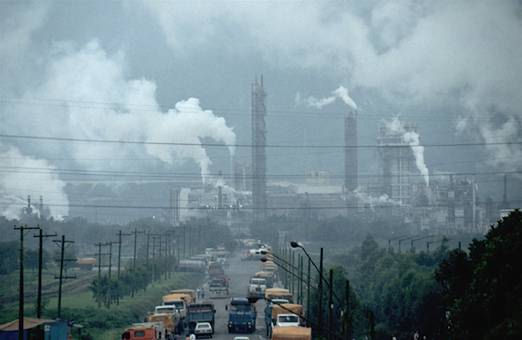
Arctic Frontiers: Disinformation, Security and the Northern Sea Route
Bellona held a seminar on countering Russian disinformation in the Arctic at the Arctic Frontiers international conference in Norway
News

Publish date: November 16, 2016
Written by: Oskar Njaa
News
The most polluted city in Russia, Norilsk in Siberia, might be seeing the end of the massive pollution from the metallurgical company Norilsk Nickel sooner, rather than later.
BarentsObserver writes that Norilsk Nickel signed a contract for a clean-up with the Canadian Company SNC-Lavalin Inc. this week. The contract is worth $1,7 billion, which makes it one of the biggest ever environmental investments made by the Norilsk Nickel company.
The goal of the project is to reduce Sulphur emissions by introducing new technical solutions on the ground in Norilsk. The project is due to be completed by 2020, and will make sure emissions are cut by as much as 75%.
The goal will be reached by catching emitted Sulphur dioxide from the plants in Norilsk. According to SNC-Lavalin, it is one of the biggest projects of its kind in the world.
If this project is completed, it bodes well for the city of Norilsk.
BarentsObserver also mentions that Norilsk Nickel closed its oldest and most polluting plant in Norilsk earlier this year, a melter built in 1942, removing annual emissions of about 380,000 tons of suplhur dioxide from its records.
The long term consequences of this shutdown is that large volumes of ore is sent to the Kola Peninsula for processing at the plant in Monchegorsk, which undoubtedly may lead to larger production and bigger amounts of polluting emissions in the Murmansk region.

Bellona held a seminar on countering Russian disinformation in the Arctic at the Arctic Frontiers international conference in Norway

Our December Nuclear Digest, reported by Bellona’s Environmental Transparency Center, is out now. Here’s a quick taste of three nuclear issues arisin...

Bellona has launched the Oslofjord Kelp Park, a pilot kelp cultivation facility outside Slemmestad, about 30 kilometers southwest of Oslo, aimed at r...

Our November Nuclear Digest by Bellona’s Environmental Transparency Center is out now. Here’s a quick taste of just three nuclear issues arising in U...